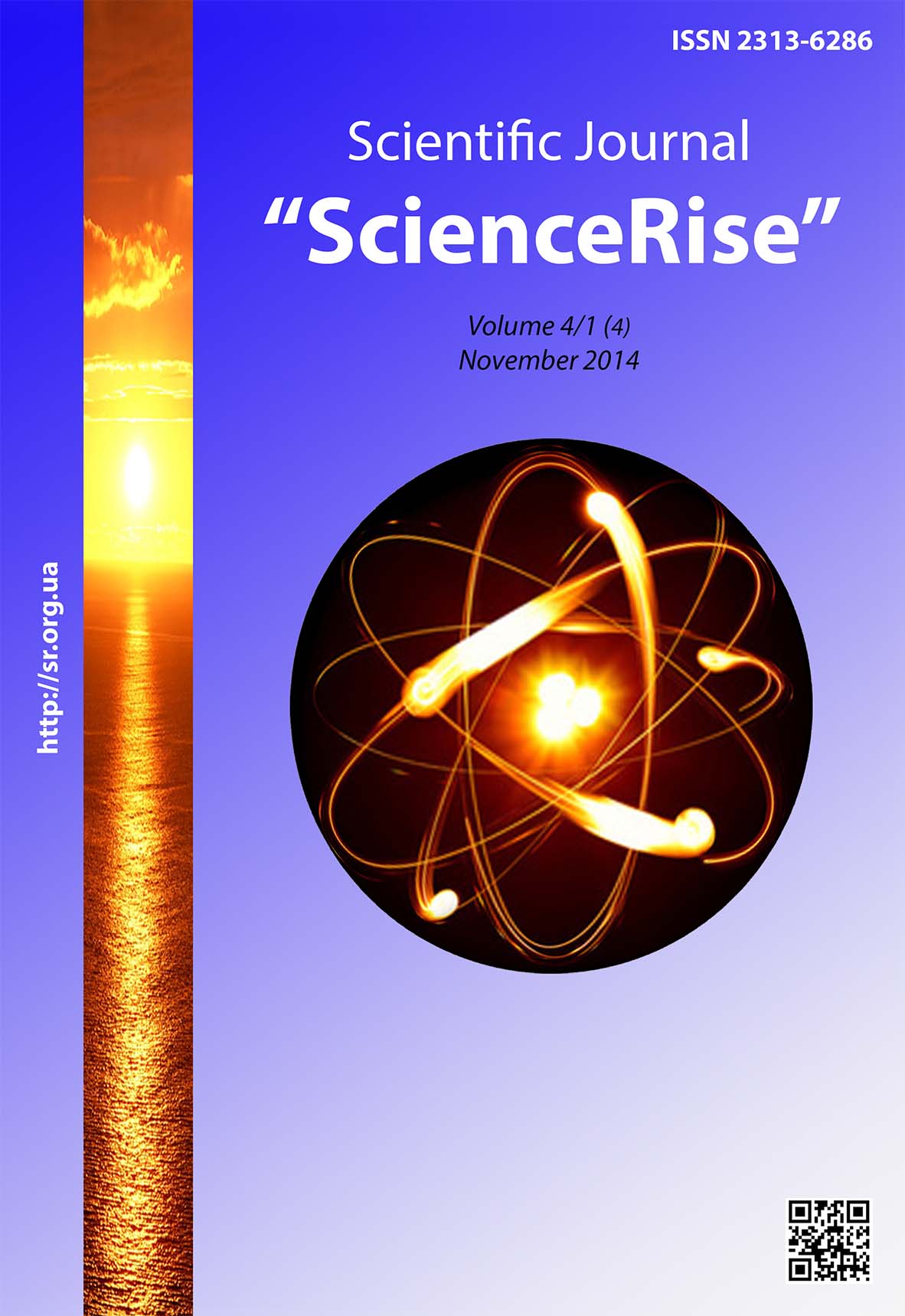Хронобіологічний паспорт як засобів оптимізації режиму дня студентів класичного університету
DOI:
https://doi.org/10.15587/2313-8416.2014.29099Słowa kluczowe:
десинхроноз, адаптація, хронобіологічний тип, хронобіологічний підхід, хронобіологічний паспорт, рітмофільний типAbstrakt
Однією з причин погіршення стану здоров'я молоді є розузгодження внутрішніх біоритмів та базових циклів «праці та відпочинку», «сну та пильнування» та режиму харчування. Питання профілактики десинхронозу у студентів полягає у плануванні та оптимізації розпорядку дня з урахуванням біоритмологічного типу людини. Хронобіологічний паспорт є системою моніторування здоров'я студентів з використанням хронобіологічного підходу.
Bibliografia
Коlyada, Т. I., Vоlyanskij, U. L., Vasil’ev, I. V., Маl’cev, V. I. (1995). Аdaptacijnij sindrom i immunitet. Kharkov: Оsnova, 368.
Тimchenko, G. M. Chronobiologichnij pіdhіd chоdо оcinki stanu zdorovya studentiv (2011). Vіsnik Kharkivskogo nаcіоnalnogo universiteta іmenі V. N. Каrazіnа. Serija: Bіоlоgija, 13 (947), 190–195.
Тimchenko, A. N. (2012). Chronobiologichnij passport. Меtodicheskoe posobie. Kurs «Оsnovi biorythmologii». Kharkiv: Kharkiskij nаcіоnalnij universitet іmenі V. N. Каrazіnа, 66–72.
Kоmаrov, F. I., Rаpoport, S. I. (2000). Chronobiologija i chronomedicina. Мoskva: Тriada, 488.
Аgadganjan, N. А., Petrov, V. I., Rаdysh, I. V., Kraushkin, S. I (2005). Chronofiziologija, chronofarmocologija i chronoterapija. Vоlgograd: Izdztelstvo Volgogradskogo gosudarstvennogo medicinskogo universiteta, 336.
Shaposhnikova, V. I., Таjmazov, V. А. (2005). Chronobiologija i sport. Мoskva: Sоvetskij sport, 180.
##submission.downloads##
Opublikowane
Numer
Dział
Licencja
Copyright (c) 2014 Ганна Миколаївна Тимченко

Utwór dostępny jest na licencji Creative Commons Uznanie autorstwa 4.0 Międzynarodowe.
Our journal abides by the Creative Commons CC BY copyright rights and permissions for open access journals.
Authors, who are published in this journal, agree to the following conditions:
1. The authors reserve the right to authorship of the work and pass the first publication right of this work to the journal under the terms of a Creative Commons CC BY, which allows others to freely distribute the published research with the obligatory reference to the authors of the original work and the first publication of the work in this journal.
2. The authors have the right to conclude separate supplement agreements that relate to non-exclusive work distribution in the form in which it has been published by the journal (for example, to upload the work to the online storage of the journal or publish it as part of a monograph), provided that the reference to the first publication of the work in this journal is included.

